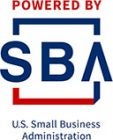 Have you been dreaming of starting a small business? Before you start a business plan, it’s time to check closer to home: how are your personal finances?
Have you been dreaming of starting a small business? Before you start a business plan, it’s time to check closer to home: how are your personal finances?
Wait! Isn’t that a totally separate issue? I’ve got a brilliant idea that’s going to change the world!
Well hold your horses, because if your personal credit is lacking, you may not get out of the gate.
“Personal financial [issues] can have a huge impact on whether you get going,” said Josh Daly, RISBDC business counselor and southern regional director. “It can have as much or more impact than a good business plan.” A lender will look at your personal credit score as an indicator of how well you manage money, and as an entrepreneur or sole proprietor a bank will assume the same level of care will be taken in your business finances. If your credit score or credit history reveals difficulty in that area, banks are likely to see you as a high risk of default on a business loan.
If your personal finances are a barrier to starting the small business of your dreams, here are nine steps you need to take to lay the foundation for (eventual) success.
1. Obtain a credit history report. You can get a free annual credit report once per year from each of the three major credit reporting companies. This gives you a good baseline from which to review your personal credit. It will show how many accounts you have open and for how long, your level of credit utilization, and history of payment. Note and dispute anything that seems incorrect.
2. Get your credit score. This number will come separate from your credit history report, but may be found on your credit card statement, from a non-profit credit counselor, or for a fee from the credit reporting agencies. As a general rule of thumb, if you want to have an easy time securing financing, your credit score should be above 700 (and the higher the better). A lower score means you’ll have more trouble getting approved, and will likely have to pay a higher interest rate for the privilege of borrowing. According to RISBDC business counselor and Providence region director Manuel Batlle, obtaining financing will be “difficult” with a credit score between 600-700, and if you’re below 600, “forget it,” because anyone willing to lend you money would be charging exorbitant interest.
3. Instead of paying high interest rates, build and repair your credit history. There are a number of ways that you can begin improving your credit score. They include establishing credit (if you have none), paying your bills in full on time, and reducing your overall credit debt. For help creating a plan to gain control of your finances and connecting with resources, seek out a reputable nonprofit credit counseling agency.
4. Make a personal budget. While you’re inching up your credit score, now is a good time to take a look at the overall financial picture that starting a business would create in your life. Would the business you plan to start realistically be capable of replacing your current salary, or keeping you in your current or preferred standard of living? Remember that the business profits need to cover all your current and anticipated personal expenses, so you need to have a good handle on what your monthly living expenses are. You’ll also need to earn enough to cover medical insurance, retirement funds, additional childcare, college savings accounts, and more. This number will be a starting point for determining whether it’s the right time in your life to go for it. Daly points out that it’s not a personal judgment if the timing is just not right to pursue your venture, say, because you need a steady paycheck while you have small children at home. It’s far better to know that before you sink in time and resources that you don’t yet have. Smartsheet has several good, free budget templates to work from.
5. Make a business budget. “Most people underestimate the costs of starting a business,” Daly said. “By a lot.” Having a realistic and specific business budget will help you insulate your personal finances by making sure that you fund your business accordingly. With proper planning, you (hopefully) won’t have to cancel Junior’s piano lessons or skip that family vacation because your startup costs ran higher than expected.
6. Fill your piggy bank. While all business plans and models may vary, a good rule of thumb is to have three to six months worth of funds saved before starting your business — make sure both your business and personal expenses are covered during that time, while you’re waiting to achieve the profit you need for regular monthly cash flow. Some businesses may take longer to turn a profit.
7. Attend RISBDC’s The Right Foot workshop. Personal finances and business budgeting are just two of the many topics covered in our startup training class.
8. Address any deficits in a personal letter. When you’ve established your budgets and ensured that it’s a great time to launch, you’re likely to find yourself seeking financing. Even if you did major work cleaning up your credit, remember it can take 7-10 years for a bankruptcy or other negative events to clear from your credit report. Whether your history has cracks due to identity fraud or due to your own actions, it’s important to explain to potential lenders any extenuating circumstances or outline (and back up!) any steps you’ve taken to reassure the lender that you are no longer making those mistakes.
9. Don’t risk your progress. Your loan has been approved. You’re waiting to close. You can taste how sweet that first champagne will be. Don’t start spending that money just yet. If your loan doesn’t close for some reason, you’d still be on the hook for expenses you incurred. If you can’t pay them back, then your credit could take a significant hit which would put you back at square one.
No matter how great your business idea, your personal credit and finances matter. Take the time to get (and keep!) them in great shape to ensure the best chances of success for your venture. With your personal finances in order, your business launch will go more smoothly, and the likelihood that your venture will prosper will be greater. Our next Right Foot Workshop is coming up soon – join us and take action!



